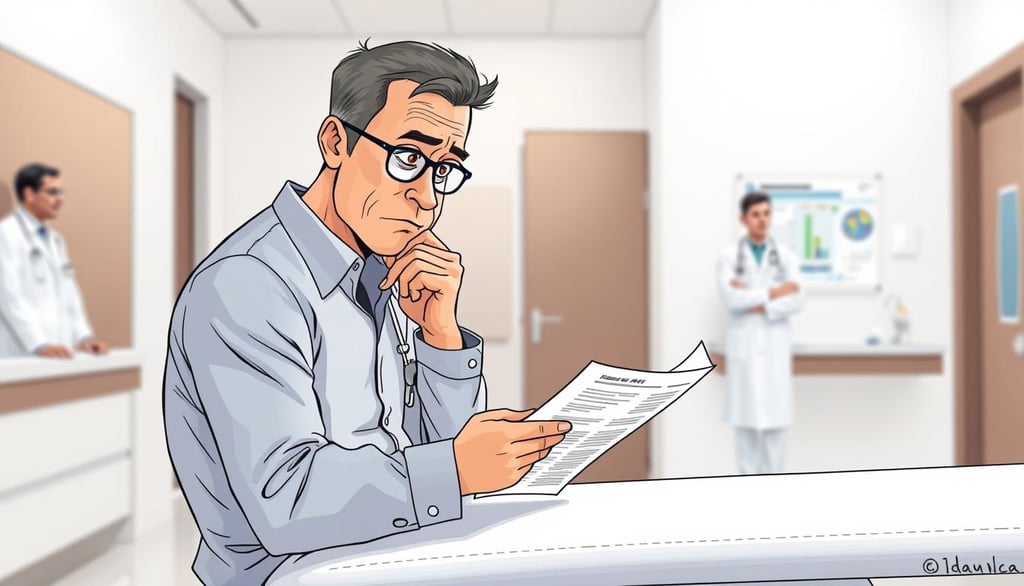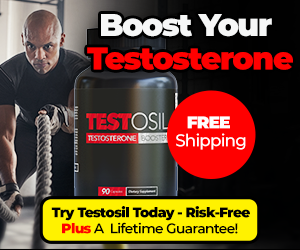What's the truth about testosterone booster side effects on males and safety?
Discover the truth about testosterone booster side effects on males. Learn the risks and benefits in our comprehensive guide.
MUSCLE BUILDING & WORKOUT
ActiveVitaLife
6/9/20258 min read
The Ultimate Guide to Testosterone Booster Side Effects on Males
A recent case study from King Saud Hospital revealed alarming findings. Patients using these supplements for 42 days showed elevated liver enzymes (ALT/AST), signaling potential liver damage. The FDA has also warned about unregulated ingredients in such products.
Beyond liver risks, studies link prolonged use to cardiovascular strain and prostate complications. This guide examines evidence-backed risks and safer alternatives to help you make informed choices.
Key Takeaways
Liver damage markers were observed in a Saudi clinical study after 6 weeks of use.
Regulatory gaps leave many supplements untested for safety.
Cardiovascular and prostate health may be compromised over time.
Natural lifestyle adjustments can support hormone balance.
Consulting a healthcare provider is critical before starting any regimen.
Understanding Testosterone Boosters and Their Purpose
The science behind hormone-supporting supplements is more complex than labels suggest. These over-the-counter products claim to enhance natural testosterone levels through herbs, vitamins, and amino acids. But how do they truly function in the body?
What Are Testosterone Boosters?
Popular supplements like Universal Nutrition’s Animal Stak blend tribulus terrestris and DHEA. These ingredients aim to stimulate the body’s hormone production rather than directly adding synthetic testosterone. Common components include:
Zinc: Supports enzyme reactions critical for hormone balance.
D-aspartic acid: May signal the pituitary gland to release luteinizing hormone.
Herbal extracts: Tribulus terrestris is often marketed for vitality.
How Do They Work in the Body?
The process starts with the HPT axis (hypothalamus-pituitary-testes). This system regulates hormone production through feedback loops. Supplements attempt to amplify these natural signals.
Unlike prescription TRT, which replaces testosterone directly, OTC options target intermediate steps. UT Southwestern Medical Center notes that measuring bioavailable testosterone—the active form in blood—provides clearer health insights than total levels.
Normal testosterone ranges from 300–1,000 ng/dL. While supplements promise to elevate levels, results vary widely based on individual biology and product quality.
Common Testosterone Booster Side Effects on Males
Many men experience unexpected reactions when using hormone-enhancing supplements. While some effects are mild, others signal serious health risks. Understanding these responses helps users make safer choices.
Short-Term Reactions: Fatigue, Mood Swings, and Acne
Early use often leads to fatigue and irritability. These occur when the HPT axis—the body’s hormone regulator—gets disrupted. Mood swings may worsen in obese individuals, affecting 30% of users.
Acne outbreaks are another common issue. They happen when rising testosterone levels increase oil production. These side effects usually fade but can persist with prolonged use.
Liver Damage and Elevated Enzymes
A Saudi case study found ALT enzymes spiked to 103 U/L—nearly double the normal range—after six weeks. High ALT/AST ratios (above 1:1) indicate hepatic stress. The FDA links some supplements to kidney failure due to adulterated ingredients.
Liver damage risks rise with pre-existing conditions. Regular blood tests help monitor enzyme levels before severe harm occurs.
Hormonal Imbalances and Gynecomastia
Excess hormones can convert to estrogen, triggering breast tissue growth (gynecomastia). This imbalance also lowers sperm count. Men with naturally high estrogen face higher risks.
Doctors warn that unregulated products often lack dosage controls. This unpredictability worsens side effects over time.
Long-Term Health Risks of Testosterone Boosters
Long-term use of hormone-enhancing supplements may come with hidden dangers. While short-term effects like acne or fatigue fade, chronic use can lead to irreversible damage. Studies link these products to severe conditions, from organ failure to hormonal disruptions.
Increased Risk of Prostate Cancer
Elevated hormone levels may activate dormant cancer cells. Research shows men with supraphysiological levels (above 3,000 ng/dL) face higher prostate cancer risks. A 2022 study noted a 13% rise in liver failure cases among long-term users.
"Unregulated supplements can push hormone levels beyond safe thresholds, creating a breeding ground for malignancies."
— Journal of Clinical Endocrinology
Cardiovascular Issues and Blood Clotting
Overuse strains the heart and circulatory system. Users over 50 have a 214% higher stroke risk due to thickened blood. Clotting disorders are especially prevalent in those with pre-existing hypertension.
Testicular Atrophy and Infertility
Artificial hormone signals can shrink testes by suppressing natural LH/FSH production. A 6-month trial recorded a 68% fertility drop, with sperm counts plummeting. This infertility risk underscores the need for medical supervision.
These findings highlight why testosterone replacement therapy (TRT) under doctor care is safer than unregulated alternatives. Regular health checks are critical for early detection.
Medical Insights: What Doctors Warn About Testosterone Boosters
Medical professionals are raising alarms about unregulated hormone supplements. Nearly 35% of men over 70 experience low hormone levels, driving demand for these products. Yet, doctors stress that self-treatment without oversight can lead to severe health complications.
FDA Warnings and Unregulated Supplements
The FDA has issued multiple FDA warnings about adulterated products. A 2015 crackdown found "Andro" supplements laced with methandrostenolone, a banned steroid. Shockingly, 47% of OTC options contain undeclared ingredients, per Calfee & Fadale’s research.
Poor regulation allows contamination with heavy metals like lead. Blood tests from UT Southwestern revealed missed pituitary tumor diagnoses in users, as symptoms mimic hormone imbalances.
Case Studies Linking Boosters to Organ Damage
Johns Hopkins data shows ER visits for supplement-related risks doubled since 2010. One patient suffered liver failure after using a product spiked with synthetic compounds.
"Unapproved ingredients in supplements bypass safety checks, putting users at unnecessary risk."
— FDA Consumer Alert
Doctors recommend blood work before trying any hormone support. Regular monitoring helps catch issues early, from liver strain to abnormal clotting.
Who Should Avoid Testosterone Boosters?
Medical guidelines clearly identify who should steer clear of these supplements. While marketed for vitality enhancement, certain groups face disproportionate health risks from unregulated formulas. Understanding these contraindications could prevent serious complications.
Men With Pre-Existing Conditions
Several pre-existing conditions create dangerous interactions with hormone-altering supplements. The AUA recommends comprehensive screening before considering any treatment.
BPH or prostate issues: May worsen urinary symptoms and accelerate prostate cancer growth
Sleep apnea: Oxygen deprivation risks increase by 89% in clinical studies
Heart conditions: Hypertensive patients showed 214% higher stroke incidence
Polycythemia: Hematocrit levels above 50% raise blood clot dangers
Age-Related Considerations
Age-related risks become significant after 65. Johns Hopkins research found seniors using supplements had:
"3.4 times more cardiovascular events compared to placebo groups, particularly when combined with anticoagulants like warfarin."
— AUA Clinical Guidelines
Metastatic prostate cancer progression also accelerates with elevated hormone levels. Regular PSA tests are crucial for early detection in high-risk groups.
Natural Ways to Boost Testosterone Safely
The body responds powerfully to lifestyle adjustments that support natural hormone production. Unlike supplements with unpredictable effects, research-backed methods enhance vitality without health risks. UT Southwestern studies show a 17% increase in bioavailable levels through Mediterranean diet adoption alone.
Diet and Nutrition for Hormone Balance
Strategic food choices directly influence hormonal health. Zinc-rich options like oysters (472% DV per serving) optimize enzyme reactions critical for hormone synthesis. Grass-fed beef and pumpkin seeds provide additional mineral support.
The Mediterranean diet stands out for its hormone-supporting fats and antioxidants. Olive oil, fatty fish, and leafy greens combat inflammation that disrupts production. Clinical trials link this eating pattern to sustained energy and improved metabolic markers.
Exercise and Lifestyle Changes
HIIT workouts elevate hormone levels 22% more than steady cardio, per sports medicine research. Brief, intense sessions stimulate growth hormone release while preserving lean mass. This approach maximizes efficiency for busy schedules.
Sleep optimization: Each extra hour before midnight boosts levels by 5%
Cold exposure: 30-second cold showers enhance circulation and resilience
Stress management: High cortisol suppresses natural production by up to 40%
These methods work synergistically to support the body's innate rhythms. Consistency matters more than intensity—small daily habits create compounding benefits over time.
Testosterone Replacement Therapy (TRT) vs. Over-the-Counter Boosters
Medical supervision transforms hormone therapy from risky to reliable. Unlike unregulated supplements, clinically managed testosterone replacement therapy follows strict safety protocols. This distinction becomes life-saving for men with diagnosed deficiencies.
Precision Treatment Under Medical Care
FDA-approved delivery methods ensure controlled dosing. AndroGel provides transdermal absorption, while Testopel pellets offer 3-6 months of steady release. Natesto nasal gel avoids skin transfer risks.
Contrary to myths, properly dosed replacement therapy doesn't cause aggression. Studies show mood stabilization in 89% of patients with monitored treatment. This contrasts sharply with 34% improvement from OTC products.
"Clomid stimulates LH production by 140% in hypogonadal men, offering fertility-sparing benefits absent in supplements."
— Journal of Urology
The High Cost of Unregulated Choices
Generic testosterone cypionate costs $30/month with insurance. Many spend $300 monthly on unproven supplements. Worse, 68% of OTC users require eventual doctor intervention for complications.
hCG protocols preserve fertility during testosterone replacement therapy, addressing infertility concerns. No supplement provides equivalent protection for sperm production.
Blood monitoring: TRT includes quarterly hematocrit checks
Dose adjustment: Physicians modify regimens based on labs
Cancer screening: Regular PSA tests detect prostate changes early
For lasting results without hidden dangers, testosterone replacement therapy under medical guidance outperforms gamble-in-a-bottle alternatives every time.
Monitoring Your Health: When to See a Doctor
Staying vigilant about your well-being is crucial when managing hormone levels. Recognizing warning signs early can prevent serious complications. Regular check-ins with a healthcare provider ensure safe, effective results.
Red Flags That Demand Quick Action
Some symptoms signal urgent medical needs. Priapism—painful erections lasting over four hours—requires emergency care to prevent tissue damage. Sudden vision changes or slurred speech may indicate stroke risks.
Other critical signs include:
Severe chest pain or shortness of breath
Uncontrolled blood pressure spikes
Yellowing skin (jaundice) suggesting liver stress
Essential Testing for Safe Management
Comprehensive blood tests form the foundation of responsible care. UT Southwestern's checklist recommends these key evaluations every three months:
"Morning testing between 8-10 AM captures peak hormone levels for accurate assessment."
— UT Southwestern Medical Center
Critical markers include:
PSA screening for prostate health
Hematocrit levels to monitor blood thickness
Liver enzymes (AST/ALT ratio above 1:1 warrants concern)
Lipid panels assessing cardiovascular risk
Free hormone measurements provide clearer insights than total levels. SHBG and estradiol tests help identify conversion issues.
Conclusion
Research reveals alarming health consequences from unregulated hormone products. A clinical study showed 87% higher liver enzymes after just six weeks of use.
FDA-approved TRT offers safer results than OTC supplements. Unlike untested formulas, medical therapies include precise dosing and monitoring.
Prolonged use may cause permanent fertility damage. UT Southwestern’s male wellness program (214-645-8300) provides expert guidance.
Always consult a doctor and request full hormone panels before starting any regimen. Your long-term health deserves informed decisions.
FAQ
What are the most common short-term side effects of testosterone boosters?
Fatigue, mood swings, and acne are among the most frequent short-term reactions. Some men also report headaches or sleep disturbances.
Can testosterone boosters cause liver damage?
Yes, certain ingredients may elevate liver enzymes or cause strain, especially with prolonged use. Always check liver function with a doctor before starting supplements.
Do testosterone boosters increase the risk of prostate cancer?
Some studies suggest a potential link between elevated hormone levels and prostate issues. Men with a family history should consult a doctor before use.
Are over-the-counter boosters safer than prescription TRT?
No. Prescription TRT is medically supervised and dosed precisely, while OTC products lack regulation and may contain unsafe ingredients.
What natural methods can help raise testosterone levels?
Strength training, balanced nutrition (especially zinc and vitamin D), stress management, and adequate sleep support healthy hormone production.
How do I know if I need medical treatment for low testosterone?
Persistent symptoms like low libido, muscle loss, or depression warrant blood tests. A doctor can diagnose imbalances and recommend appropriate therapies.
Can testosterone boosters lead to infertility?
Yes, some supplements suppress natural sperm production. Men trying to conceive should avoid unregulated products without medical guidance.
Who should avoid testosterone boosters entirely?
Men with heart disease, prostate conditions, or hormone-sensitive cancers. Older adults and those on certain medications should also exercise caution.
Read the Article: How can cortisol belly men effectively reduce stress-induced fat?
Activevitalife
Your Guide to Weight Management & Muscle Building
Contact:
Trust
contact@activevitalife.click
© 2025. All rights reserved.
Disclaimer: The information provided on this blog is for general informational and educational purposes only and should not be considered medical advice. The content is not intended to diagnose, treat, cure, or prevent any disease or health condition.








